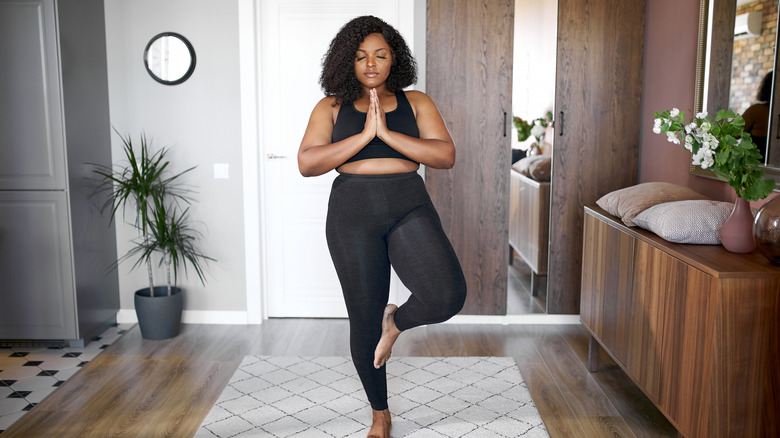The Big Difference Between Health And Wellness
You've probably heard the terms health and wellness before. You may even think that they mean the same thing. While they are similar and often used interchangeably, they have some key differences.
According to the World Health Organization, health is defined as "a state of complete physical, mental and social well-being and not merely the absence of disease or infirmity." Wellness, on the other hand, is the daily practice and choices you make to have better results in your health (via Pfizer). Instead of just existing, you are being the best you can be. There is agency and choice involved in wellness across many areas, including social life, exercise habits, eating habits, and mindfulness.
To put it simply, health is the measure of your physical, mental, and social well-being, while wellness has to do with the choices you make to live a healthy life. This key distinction can help you think through ways of improving various aspects of both your health and wellness.
Wellness is a way to achieve health
Think of the difference between health and wellness like this. When you go in for your annual physical, your doctor might measure your blood pressure and make recommendations if it's too high. You can think of health as your current physical state (high blood pressure). Wellness would be the way to improve that state (the doctor's recommendations).
Your health status is often defined by how balanced it is or if there's no presence of illness or disease. Wellness directly influences someone's health through proper choices, according to Sanford Health. Another difference is that health is usually only categorized into three areas: physical, mental, and social (per World Health Organization). However, there are many categories of wellness that can affect your overall health, including physical, mental, emotional, social, environmental, and spiritual, according to MedicineNet.
Small decisions across all these areas can make a huge difference to your health, such as taking a brisk walk, taking 10 minutes to call someone you love, or taking a few minutes every day to practice mindfulness, according to Pfizer. Practicing wellness means taking steps and making positive decisions that affect your health every day (via MedicineNet).


